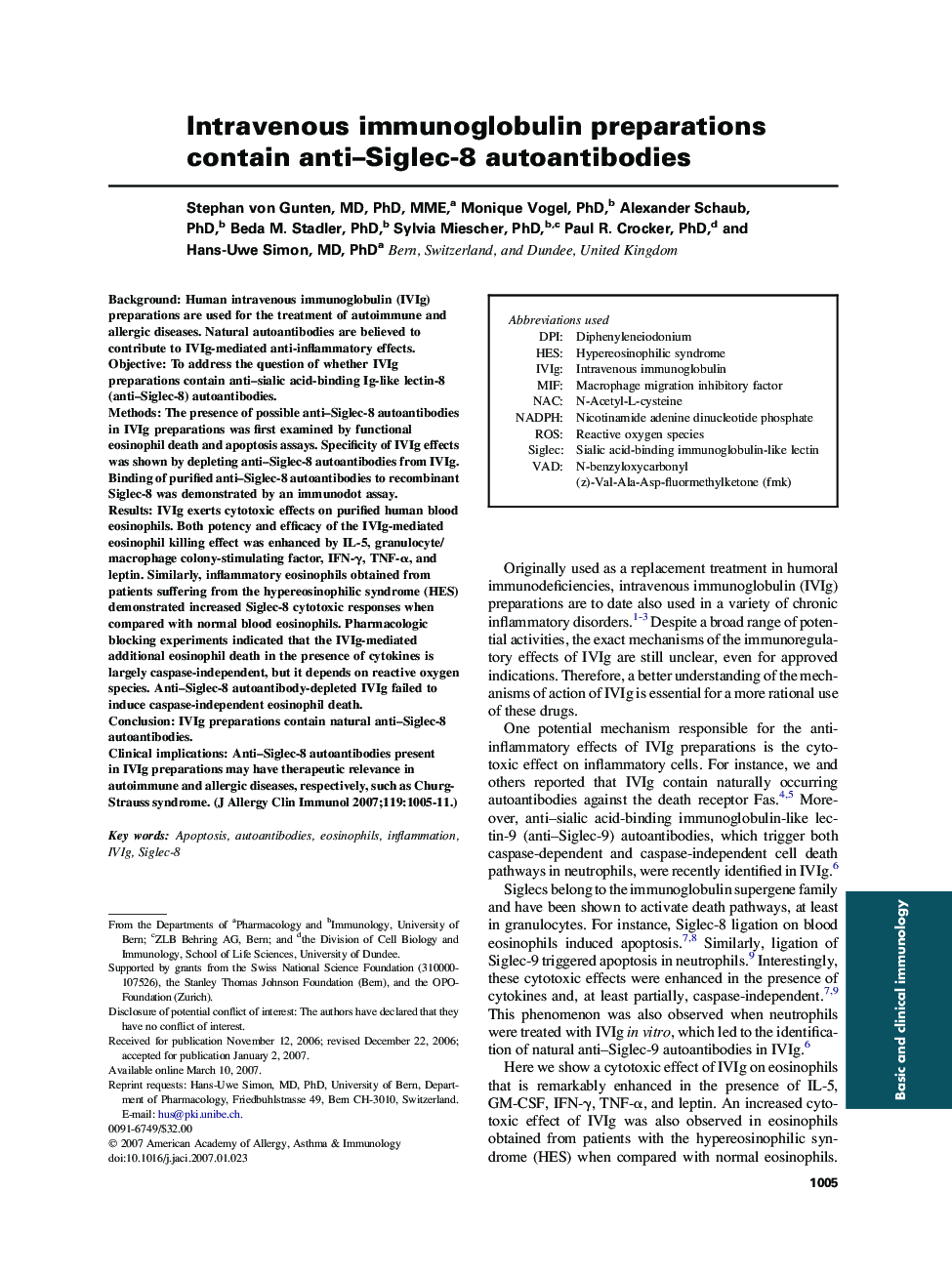| Article ID | Journal | Published Year | Pages | File Type |
|---|---|---|---|---|
| 3202045 | Journal of Allergy and Clinical Immunology | 2007 | 7 Pages |
BackgroundHuman intravenous immunoglobulin (IVIg) preparations are used for the treatment of autoimmune and allergic diseases. Natural autoantibodies are believed to contribute to IVIg-mediated anti-inflammatory effects.ObjectiveTo address the question of whether IVIg preparations contain anti–sialic acid-binding Ig-like lectin-8 (anti–Siglec-8) autoantibodies.MethodsThe presence of possible anti–Siglec-8 autoantibodies in IVIg preparations was first examined by functional eosinophil death and apoptosis assays. Specificity of IVIg effects was shown by depleting anti–Siglec-8 autoantibodies from IVIg. Binding of purified anti–Siglec-8 autoantibodies to recombinant Siglec-8 was demonstrated by an immunodot assay.ResultsIVIg exerts cytotoxic effects on purified human blood eosinophils. Both potency and efficacy of the IVIg-mediated eosinophil killing effect was enhanced by IL-5, granulocyte/macrophage colony-stimulating factor, IFN-γ, TNF-α, and leptin. Similarly, inflammatory eosinophils obtained from patients suffering from the hypereosinophilic syndrome (HES) demonstrated increased Siglec-8 cytotoxic responses when compared with normal blood eosinophils. Pharmacologic blocking experiments indicated that the IVIg-mediated additional eosinophil death in the presence of cytokines is largely caspase-independent, but it depends on reactive oxygen species. Anti–Siglec-8 autoantibody-depleted IVIg failed to induce caspase-independent eosinophil death.ConclusionIVIg preparations contain natural anti–Siglec-8 autoantibodies.Clinical implicationsAnti–Siglec-8 autoantibodies present in IVIg preparations may have therapeutic relevance in autoimmune and allergic diseases, respectively, such as Churg-Strauss syndrome.
